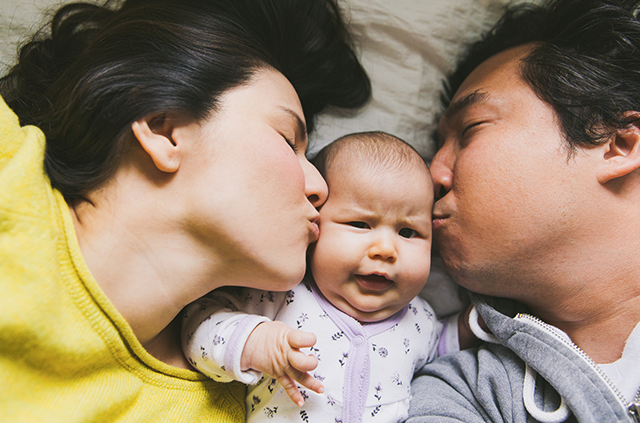Lots of life events can necessitate a change to your life insurance policy, but in particular, having a child could certainly be considered one of the biggest. It’s also the sort of life event that comes with lots of questions, especially if it’s your first child. So, when it comes to deciding whether or not to purchase a child life insurance policy, you may be wondering what that means and whether it will be worth it in the long run.
Here our experts weigh in and offer advice on the most-asked questions they’ve received about child life insurance.
What is child life insurance?
Just like life insurance for an adult, life insurance for children is an agreement with an insurance company – but in the case of a child ages 17 or younger, a parent, grandparent or guardian serves as the policyholder.
“Child life insurance policies are put together in hopes that the growth that occurs will result in a substantial amount of usable equity to aid in providing substantial living benefits,” said Christopher Perrier, director of life insurance sales operations with AAA.
What are the benefits of a child life insurance policy?
One of the biggest advantages of child life insurance is the feeling of security in knowing that your child is financially prepared for life’s big moments. “Children’s life insurance policies provide continuing coverage as they grow older for things like starting a family or getting married, where the coverage can then provide that much more value to families of their own,” said Perrier.
Having one also guarantees your child will have coverage in the event that they end up developing a health condition later on in life. In addition, you’re locking in a low rate.
“[A] huge benefit of these policies is that when children are young and healthy, the cost of insurance is as low as it will ever be,” Perrier said. “There is no better time to secure a policy to ensure they will always have coverage in place in the event they become uninsurable.”
Child life insurance policies can either be purchased separately from a parent or guardian’s policy, or they can be added as a term rider. Typical life insurance policies for children are categorized as either whole life or indexed universal life.

What is indexed universal life insurance?
An indexed universal life, or IUL, policy offers permanent lifetime protection and the ability to grow in a stock market to increase the interest that’s credited to the cash value in the policy. “The beauty of this policy is that no dollars are actually invested in the index,” Perrier said. “In the event that the market has a down year, there would be no loss of any cash value.”
This kind of policy also has what is referred to as an annual reset, so any gains that are obtained are locked in every year they occur. This way, there’s never a risk of loss but always a healthy potential for growth. “A monthly investment of as little as $50 can result in a huge potential for cash value growth while the child grows up,” Perrier said. That cash value, he advises, could be easily used for college, a down payment on a home, opening a business or any number of life’s big events.
Should you purchase a policy when you’re expecting?
Because insurers consider pregnancy to be a medical condition — a category that can impact your rates — the best time to get life insurance would be before you become pregnant. However, if you are already pregnant, applying as early as possible can help deter any pregnancy-related health factors related to your policy.
Can you purchase a policy for your grandchildren?
Grandparents are welcome to purchase a policy for their grandchildren, said Perrier. “Many clients establish child policies for their grandchildren as a gift when the child is born. While most children outgrow tangible gifts such as toys or clothing, a children’s life insurance policy can be designed to create a lasting legacy for generations to come.”















